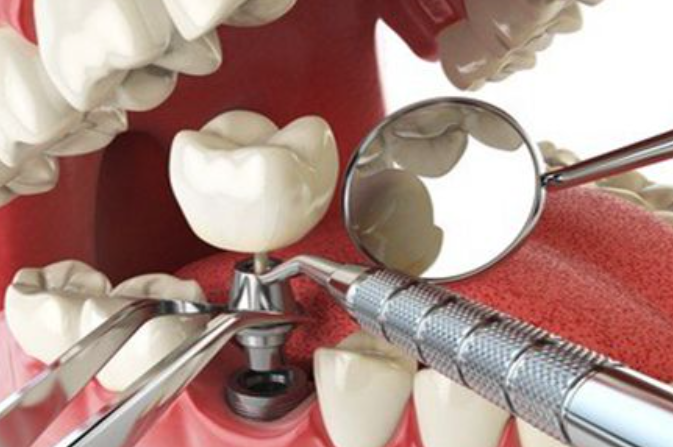
Periodontitis is not only red and painful gums, but also causes progressive destruction of alveolar bone
Many diabetic patients suffer from severe periodontal disease, teeth fall out one after another, they do not know that excessive blood sugar can lead to oral bacteria grow, periodontal inflammation, and then destroy the alveolar bone.
When the teeth do not move, the patient can only eat soft, digestible food, which in turn is not conducive to the control of blood sugar.
Harm: Periodontitis and diabetes interact
Periodontitis is a chronic disease in which the tissues around the teeth are infected by bacteria. Dr. Chen Lei, deputy director of the dental pulp Department of Guangdong Provincial Stomatological Hospital, said that if people suffer from diabetes, the body's resistance will decline, and the growth and reproduction of bacteria in the mouth will continue to accelerate, which can easily lead to or aggravate periodontal infection, that is, periodontitis.
This is often not particularly noticeable in the early stages, and usually just manifests as receding gums, food impaction, bleeding after brushing, and bad breath.
However, periodontitis is not only red, swollen and painful gums, but more terrible is that it will cause progressive destruction of the alveolar bone around the teeth.
The loss of alveolar bone is irreversible and will become more and more serious with the development of the disease.
To a certain extent, patients will have weak chewing teeth, repeated swelling and pain of the gums, and loose and displaced teeth. At this time, periodontitis has progressed to the middle and late stages.
If it is not paid attention to again, the teeth will eventually fall out one by one, which will not only affect the appearance, but also affect the eating and gastrointestinal digestion and absorption function.
If blood sugar is not well controlled, periodontitis can develop more quickly. On the other hand, once the teeth are loose and too many teeth are missing, diabetic people can not eat crude fiber food, and can only eat soft and easy to digest food, which is not conducive to controlling blood sugar.
Treatment: requires the cooperation of doctors and patients
The treatment of periodontitis is helpful to control diabetes, and the treatment of periodontitis in diabetic patients needs the cooperation of doctors and patients. Chen Lei introduced the specific treatment methods:
● Basic treatment. Eliminate periodontal active inflammation. Go to the hospital for supragingival cleaning (commonly known as dental cleaning), subgingival curetting and root surface leveling (commonly known as deep dental cleaning) to remove dental plaque, soft scale and calculus.
The defective prosthesis is removed, the affected tooth that cannot be retained is extracted, and the gingival flap surgery is performed if necessary.
● Recovery of chewing function.
Such as loose tooth fixation, movable or fixed denture restoration, implant denture restoration in the missing tooth area, etc., to rebuild chewing function.● Regular review. Every 3 to 6 months to the hospital review, preventive cleaning treatment, to prevent the recurrence of periodontitis.
Plaque control is achieved through self-maintenance, that is, reducing the type and number of harmful bacteria in the mouth:
Brushing is the main means of cleaning teeth, correct brushing can remove plaque, soft dirt, food debris. Patients should choose a well-designed toothbrush (soft hair, small head) and brush their teeth once a day in the morning, middle and evening for 3 minutes each time.
Space brushes and floss are especially important for patients with receding gums. Interdental brushes and floss are specifically used to remove plaque and food impaction from adjacent teeth (interdental).
● Rinse your mouth after meals. When gargling, the solution should be contained in the mouth, close the mouth and stir the cheeks and lips, so that it fully contacts the teeth, gums and mucosal surface, repeatedly impact all parts of the mouth, and remove the food residue and some soft dirt in the space between the teeth.

